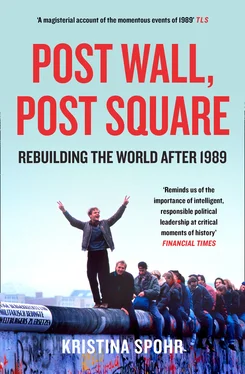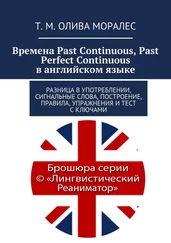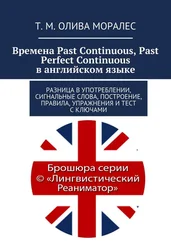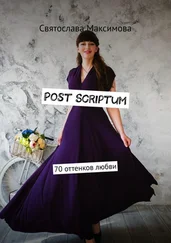Her foreign policy was traditional, built around ideas of a balance of power. Thatcher was passionate about the ‘special relationship’, assiduously cultivating Ronald Reagan. She was equally ardent about nuclear deterrence, advocating the modernisation of NATO’s theatre nuclear forces and pushing through the deployment of cruise missiles despite fierce opposition from the left. She was as convinced as Reagan that communism was an ideology of the past and therefore endorsed Gorbachev’s reform policies, though keeping a wary eye on their consequences for Soviet power. Within Europe she was a ferocious critic of deeper economic and political integration, especially the Delors Plan, although she did sign up enthusiastically to the single market in 1986. And as the Soviet bloc crumbled in 1989, her biggest fear was that a new German hegemon could destroy the European equilibrium, painfully constructed over four decades. The combination of a single currency and a unified, sovereign Germany in the centre of Europe would be simply ‘intolerable’, she told Mitterrand on 1 September. She had, she said, ‘read much on the history of Germany during her vacation and was very disturbed’.[120] Three weeks later, in similar vein, she informed Gorbachev that ‘although NATO traditionally made statements supporting Germany’s aspirations to be reunited, in practice we would not welcome it at all’.[121] In other words, even before the Wall had fallen, she was clearly ‘on the warpath’ against German unity.[122]
Thatcher seemed to object to pretty much everything, and didn’t hide it. Yet she had little to offer in the way of practical alternatives. She longed to see the end of communism but dreaded the effect this might have on the European power balance. When Genscher visited her on the day after Kohl’s speech, she worried about Gorbachev’s fate. If Germany unified, the Soviet leader fell and the Warsaw Pact disintegrated, what then? It was imperative, she lectured Genscher, to first develop democratic structures in Eastern Europe. She insisted that political freedom in Eastern Europe would only be sustainable if economic liberalisation were properly implemented, and blamed Gorbachev for being too fixated with repairing socialism rather than ditching it. The changes now under way in Eastern Europe, geared towards freedom and democracy, must take place against a ‘stable background’. In other words, she said, ‘one should leave the other things as they are’. History had shown that Central Europe’s problems always started with minority issues; if one tinkered with borders, everything would unravel. That was how the First World War had broken out. Ten days ago in Paris, she asserted, unification and borders had not been on the table; now Kohl’s speech had shaken all the foundations.
Genscher tried to calm her down by refocusing on the topic of conventional arms-reduction talks to stabilise the heart of Europe. He, of course, wanted to persuade the Soviets to withdraw their troops from eastern Germany. But Thatcher jumped on that. She didn’t want Soviet troop withdrawals if that meant the Americans would pull out as well. For her, it was not just a question of strategic balance or European security, the troop question was also about keeping the Germans under control.[123]
Britain’s Foreign Secretary Douglas Hurd sat in on the whole meeting, but hardly said a word. He had little opportunity whenever Thatcher went on the rampage. But the Foreign and Commonwealth Office (FCO) was genuinely concerned about the line Thatcher was taking.[124] An internal FCO memo on the day of Genscher’s visit acknowledged that Germans ‘see our position as being outside the mainstream’. As indeed did Washington: the president was ‘taking his distance from us on the Warsaw Pact and on German reunification’. As for Thatcher’s obsession with Gorbachev’s political fragility, the FCO considered this greatly exaggerated because Gorbachev himself was ‘not intervening to stop communism being swept away in Eastern Europe’. So there was a real danger that ‘we are being plus royaliste que le roi ’. And they warned against a status quo policy and being left behind by not being seen to share Bush’s vision of a Europe ‘whole and free’. If, in extremis , the PM decided to block German unification by asserting Britain’s position as one of the four victor powers, ‘we should not count on carrying anyone else with us’.[125]
Thatcher was simply not on the same page as her diplomats. Not only was she blunt with Genscher, she did not hesitate to speak out against Kohl, whom she disliked personally – a fat, sausage-munching, Teutonic stereotype – as well as resenting him as the embodiment of the colossus of Europe.[126]
The British prime minister was the most outspoken Western critic of the Ten Points but Genscher also had difficulties with the French president. Mitterrand was shocked at being left in the dark by Kohl – especially after their intense discussions throughout November, in Bonn, Paris and Strasbourg. Kohl had even written to him at length on the 27th about the future of economic and monetary union without dropping a hint of what he would announce next day about unification. Nevertheless, biting his tongue, Mitterrand told the press in Athens where he was on a state visit, that although he expected the Four Powers to be kept in the loop by Bonn, the German desire for unity was ‘legitimate’ and that he had no intention of opposing their aspirations. What’s more, he said, he trusted the Germans to make sure that the other European peoples would not be confronted by German faits accomplis made in secret.[127]
When Mitterrand met Genscher in the Elysée Palace, their forty-five-minute encounter was polite but rather distant. Invited to speak first, Genscher highlighted his credentials as a European. He insisted that the FRG was fully committed to EC integration and willing to engage with the East. He believed that the destiny of Germany must be tied to the destiny of Europe. European reunification could not happen without German reunification. Nor did he want the dynamism of the EC’s integration process to be left behind because of the energy devoted to reshaping East–West relations. And NATO, too, should get engaged – not least because America’s presence in Europe and on German soil was an ‘existential necessity’.[128]
Mitterrand heard him out but then delivered his own lecture, expressed with mounting intensity, as he reflected on his personal odyssey through two world wars. Born in 1916 – the year of the Franco-German slaughterhouse at Verdun – Mitterrand was himself a veteran of 1940. Like any patriotic Frenchman, he had historical obsessions about Germany. But, like most of France’s post-war leadership, especially since the Adenauer–de Gaulle entente of 1963, he was deeply committed to Franco-German reconciliation, to fostering the ‘special relationship’ between Paris and Bonn and to the leading role of their two countries in European integration.[129] Although a socialist and therefore ideologically at odds with the Christian Democrat chancellor, he and Kohl had become good friends – famously standing hand in hand in 1984 at the Verdun memorial. Despite such public displays of friendship, however, Mitterrand remained ambivalent about the German state.[130]
German unity looked fine as long as it remained a distant prospect. Mitterrand had told Thatcher in September that he was less alarmed than she, not only because he believed that the EC, and specifically the single currency, would act as a restraint, but also because he did not envisage German unification happening quickly. Gorbachev, he told her confidently, would never accept a united Germany in NATO and Washington would never tolerate the FRG leaving the Alliance: ‘ Alors, ne nous inquiétons pas: disons qu’elle se fera quand les Allemands le décideront, mais en sachant que les deux Grands nous en protégeront ’ (‘So let’s not worry: let’s say it will happen when the Germans decide, but in the knowledge that the two superpowers will protect us from them’).[131]
Читать дальше












